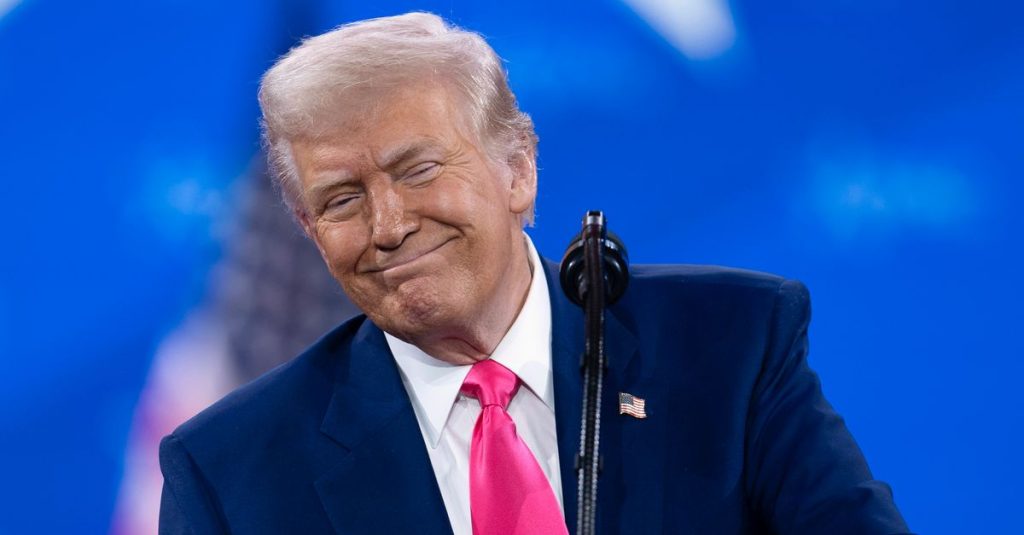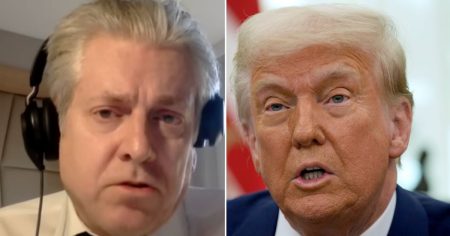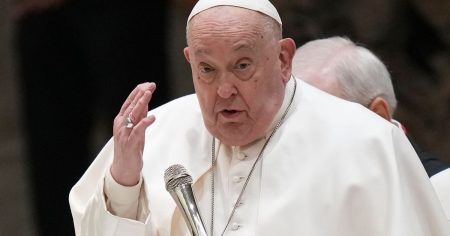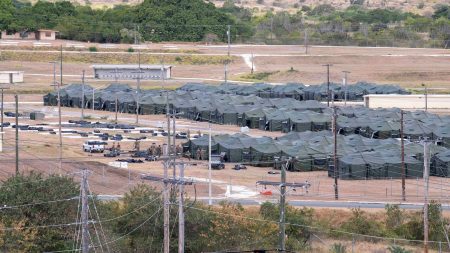Donald Trump’s Ongoing Disinformation Campaign About the Ukraine-Russia War
At the Conservative Political Action Conference (CPAC) held in a suburb of Washington, D.C., former President Donald Trump continued to peddle his well-rehearsed falsehoods about the ongoing conflict between Russia and Ukraine. In his speech, Trump blamed the U.S. for the war, claiming it would never have happened if he were still in office, while completely ignoring Russia’s role as the aggressor. He also repeated a misleading claim about the scale of Western aid to Ukraine, stating, "Europe has given $100 billion. The United States has given $350 billion because we had a stupid, incompetent president and administration." In reality, Europe has contributed or pledged $204.1 billion in assistance, while the U.S. has provided $183 billion. However, the vast majority of American aid—70% of the $183 billion—has been used to replace old weaponry sent to Ukraine with new stock through defense contracts, creating jobs in U.S. factories.
Despite this, Trump demanded that Ukraine compensate the U.S. by granting mineral rights, saying, "We’re asking for rare earth and oil, anything we can get. But we feel so stupid." He also framed the war as a tragedy for both sides, stating, "It’s got to end. It’s a horrible, horrible thing to watch," while describing himself as a mediator between Ukrainian President Volodymyr Zelenskyy and Russian President Vladimir Putin. Trump’s rhetoric has increasingly aligned with pro-Russian narratives, even as he criticized Zelenskyy and praised Putin.
The Pro-Putin Sentiment at CPAC
The CPAC audience reflected a growing pro-Putin sentiment within the conservative movement, a trend that has intensified since Trump’s election in 2016. When Italian Prime Minister Giorgia Meloni criticized Russia’s aggression in an earlier speech, the crowd remained silent. Similarly, when House Speaker Mike Johnson was asked about Congress approving more aid for Ukraine, the audience booed loudly. This stark shift in attitudes underscores how Trump’s influence has reshaped Republican foreign policyviews, with many now openly sympathetic to Putin’s authoritarian regime.
Trump’s speech lasted over an hour and covered a wide range of topics, including his false claims about the 2020 election being stolen, his portrayal of the January 6 insurrectionists as "political prisoners," and his spread of debunked conspiracy theories about vaccines, autism, and the gold reserves at Fort Knox. His comments on Ukraine and Russia, however, were particularly notable for their alignment with Kremlin propaganda and their departure from traditional Republican foreign policy stances.
Trump’s Misrepresentation of Aid to Ukraine
Trump’s claims about U.S. and European aid to Ukraine are deeply misleading. While he asserted that the U.S. has given $350 billion, the actual figure is $183 billion, with much of it being used to replenish American military stockpiles. Similarly, Europe’s contributions amount to $204.1 billion, far more than the $100 billion Trump claimed. This distortion of facts serves to undermine public support for aiding Ukraine and to shift blame onto the Biden administration for the ongoing conflict.
Moreover, Trump’s demand for Ukraine to hand over mineral rights, including rare earth elements and oil, adds another layer of controversy to his remarks. This demand not only disregards Ukraine’s sovereignty but also ignores the stark realities of the war, which has left millions displaced and caused unimaginable suffering. By framing the U.S. as a victim of supposed incompetence, Trump deflects responsibility from Russia’s unprovoked aggression.
The Normalization of Pro-Putin Sentiment in the GOP
The CPAC event highlighted a disturbing trend within the Republican Party: the normalization of pro-Russian sentiment, particularly among its base. Trump’s praise for Putin, coupled with his criticism of Zelenskyy, reflects a broader shift in how conservatives view the conflict. This perspective is increasingly at odds with the bipartisan consensus that Russia is the aggressor and that Ukraine deserves support.
Experts have warned that Trump’s rhetoric, along with the GOP’s growing tolerance of pro-Putin views, could have long-term consequences for U.S. foreign policy and global alliances. By presenting both sides as equal victims, Trump obscures Russia’s responsibility for the invasion and downplays the severity of its war crimes, including missile attacks on civilians and widespread human rights abuses. This narrative not only undermines Ukraine’s legitimacy but also erodes international resolve to hold Russia accountable.
The Broader Implications of Trump’s Rhetoric
Trump’s remarks at CPAC are part of a larger pattern of disinformation and revisionism that has defined his post-presidency. By spreading falsehoods about the war, the 2020 election, and other topics, he continues to polarize the political landscape and erode trust in institutions. His calls for Ukraine to repay the U.S. with mineral rights are not just unrealistic but also deeply cynical, given the devastating toll the war has taken on the Ukrainian people.
The CPAC audience’s response to Trump’s speech, as well as their silence during Meloni’s criticism of Russia, suggests that this rhetoric is resonating with a significant segment of the conservative movement. As the 2024















